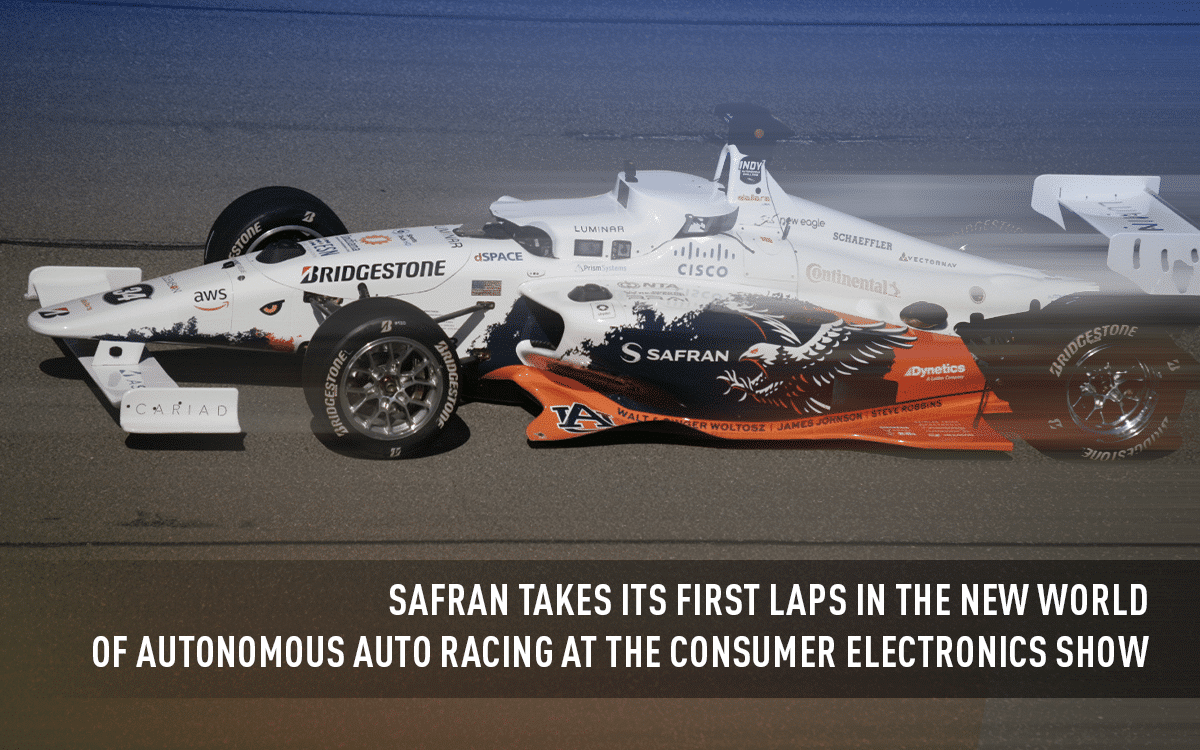
# Videos
Indy Autonomous Challenge
Safran reached a new milestone in showcasing how its market-leading resilient positioning, navigation and timing (PNT) solutions and GNSS simulation technology are driving autonomous vehicle innovation.
One of the major highlights of the 2023 Consumer Electronics Show (CES), the largest and most influential tech show in the world, was the Indy Autonomous Challenge at the Las Vegas Motor Speedway on January 7. Nine fully autonomous Formula 1 race cars, representing colleges and universities from around the world, took part in a head-to-head driverless racing competition roaring at speeds approaching 190 mph.
Safran sponsored the Autonomous Tiger Racing team from Auburn University where engineering students are enrolled in the Minerva Academic Partnership Program. Minerva provides research and educational institutions with access to Skydel, the world’s leading software-based GNSS simulation platform that powers Safran’s advanced simulators like the GSG-8.
The official vehicle of the Indy Challenge is the Dallara-built AV-21, which has been retrofitted with hardware and controls to enable automation. Auburn students use Safran’s technology in the lab to test the car under various scenarios and conditions it might face at high speeds while navigating its way around the track.
Here’s a look back at this incredible event, which pushed the boundaries of car racing and PNT technologies.
GNSS Simulation at high speed
The IAC is a broadly collaborative effort that brings together public-private partnerships and academic institutions to challenge university students around the world to imagine, invent and prove a new generation of automated vehicle software to run fully autonomous racecars and inspire the next generation of STEM talent.
The competition was conducted as a single elimination tournament consisting of multiple rounds of dual passing competition matches culminating in a championship match. The two unmanned vehicles took turns playing the role of leader (defender) and passer/follower (attacker). Passes were attempted at ever-increasing speeds until one or both cars were unable to successfully complete a pass.
The Auburn University team finished in a strong position and achieved their main objectives: pushing their skills to the limit while making technological improvements to accelerate a self-driving vehicle at high velocities without crashing or losing the signal.
Accurate positioning: a challenge for numerous sectors
Skydel Simulation Engine offers the best of both worlds: the high-end performance from a top-grade GNSS simulator, coupled with the economy of scale and flexibility of its software-defined architecture. In addition to commercial applications like autonomous vehicles, global aviation, and new space, Skydel powers each of Safran Federal System’s advanced software-defined simulators, like the BroadSim and BroadSim Wavefront, as unmanned systems are driving new technologies for the military.

